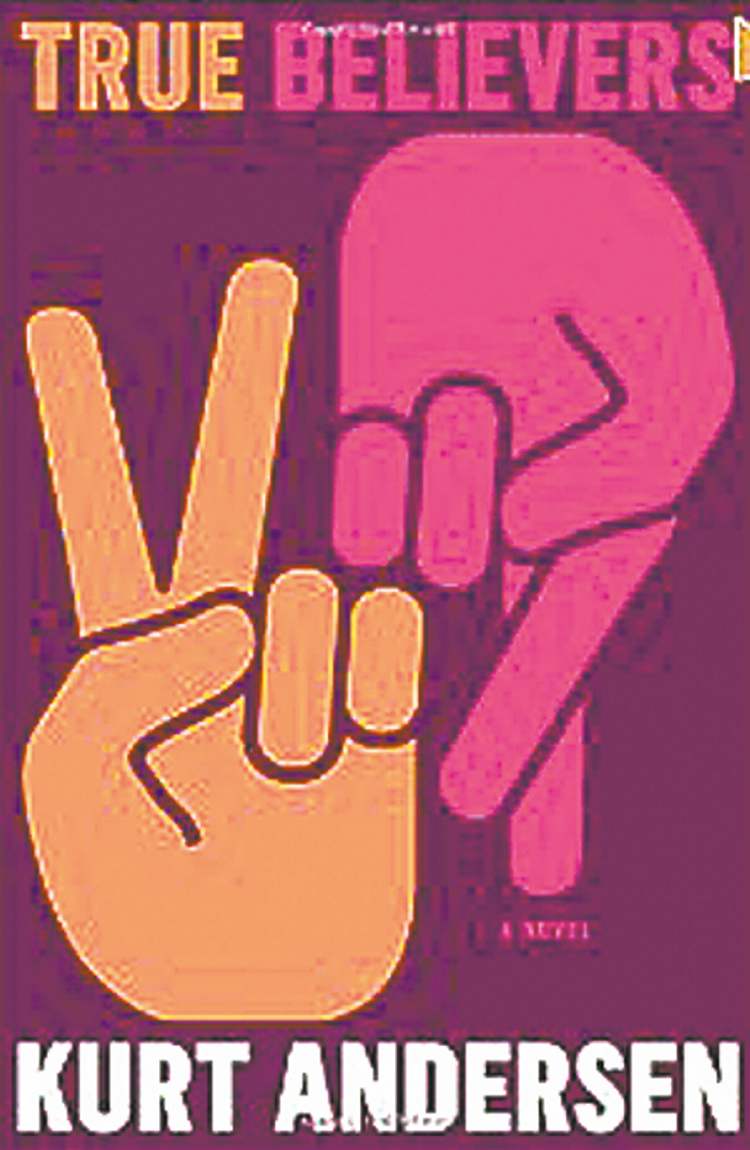Genre grafting an umitigated success
Advertisement
Read this article for free:
or
Already have an account? Log in here »
To continue reading, please subscribe:
Monthly Digital Subscription
$0 for the first 4 weeks*
- Enjoy unlimited reading on winnipegfreepress.com
- Read the E-Edition, our digital replica newspaper
- Access News Break, our award-winning app
- Play interactive puzzles
*No charge for 4 weeks then price increases to the regular rate of $19.95 plus GST every four weeks. Offer available to new and qualified returning subscribers only. Cancel any time.
Monthly Digital Subscription
$4.99/week*
- Enjoy unlimited reading on winnipegfreepress.com
- Read the E-Edition, our digital replica newspaper
- Access News Break, our award-winning app
- Play interactive puzzles
*Billed as $19.95 plus GST every four weeks. Cancel any time.
To continue reading, please subscribe:
Add Free Press access to your Brandon Sun subscription for only an additional
$1 for the first 4 weeks*
*Your next subscription payment will increase by $1.00 and you will be charged $16.99 plus GST for four weeks. After four weeks, your payment will increase to $23.99 plus GST every four weeks.
Read unlimited articles for free today:
or
Already have an account? Log in here »
Hey there, time traveller!
This article was published 14/07/2012 (4926 days ago), so information in it may no longer be current.
KURT Andersen’s third novel is a hybrid — a literate suspense story set in the present married to thoughtful historical fiction. And this grafting of two genres is an unmitigated success.
Andersen is a Brooklyn-based writer, U.S. public radio host and co-founder of the now-defunct Spy magazine. His two previous novels, Turn of the Century (1999) and Heyday (2007) were bestsellers.
The principal character here is Karen Hollander, a prominent lawyer in her early 60s who recently removed herself from consideration for appointment to the U.S. Supreme Court.

She’s also a writer of some celebrity. And the memoir she’s currently penning explains her recent decision to decline a spot on the top court, due to a long-buried secret of her criminal anti-Vietnam war activities while a Radcliffe undergrad in 1968.
Andersen tells the story in alternating episodes between the present and the 1960s.
His shifts back and forth in time are seamless. Sometimes past and present even mirror each other, and the Hollander of then reflects the one of now.
There’s nothing hackneyed about the portrayal of the 1960s. Andersen’s realizations of time, place and politics are convincing as he spins a story that’s pulls you along with intelligent old-fashioned readability.
And there’s a lot of historically accurate clever detail that makes Hollander’s account of her childhood and adolescence resonate as close to fact as fiction can.
The novel also does a bang-up job of capturing the manic energy and desperate strangeness of the life of middle-class urban youth as politics and civil rights becomes a killing floor (the assassinations of Martin Luther King and Robert F. Kennedy, the Kent State killings), war seems endless and pointless (Vietnam), and violent revolution in the streets seems not merely possible, but inevitable.
Wandering in and out of the finely meshed plot is no less than Agent 007, James Bond.
During her early teens, Hollander and her longtime friends, and later co-conspirators, Chuck and Alex, were Bond aficionados (the books, not the movies). They publicly but harmlessly acted out plots from the Ian Fleming spy thrillers, with innocent strangers as unwitting villains and targets.
Their play-acting stands them in good stead years later, when subterfuge and assassination become the real objects of their lives.
Before she publishes her memoirs, Hollander wants to warn, and compare memories of an abortive act of treason with, her surviving two co-conspirators, both of whom also got away scot-free. And both of whom, 40 years on, still live in fear of public disclosure.
All the players in this story are richly drawn, and the settings are niftily rendered.
And the plot is nigh-on perfect — nicely hinting and teasing about not just where it’s going, but how it’s going to get there.
Douglas J. Johnston is a Winnipeg lawyer and writer.

